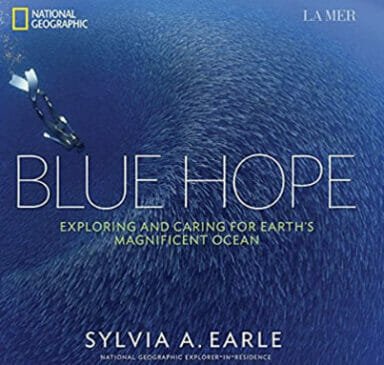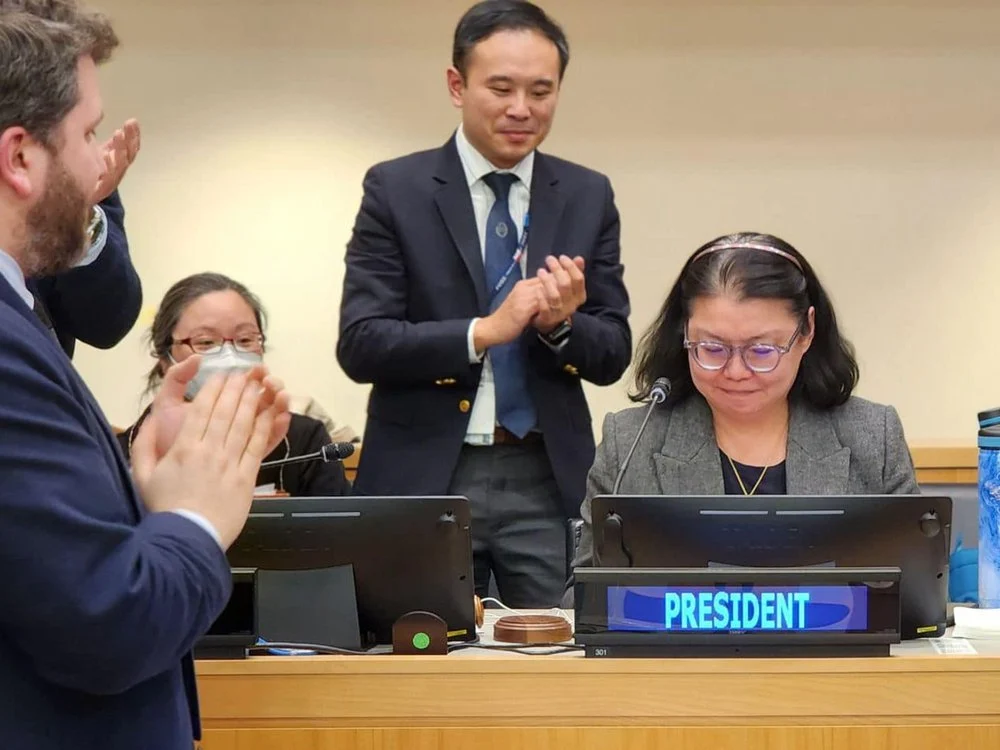It’s not every day that a global environmental agreement is praised by everyone from the United States and the European Union to China and the Africa Group to the Pew Charitable Trust and Greenpeace. But that’s what happened last weekend when all UN member states agreed to a legally binding “UN High Seas Treaty” to protect the ocean’s biodiversity. Nearly two decades in the making, the agreement is “world changing,” said Rebecca Hubbard of the nonprofit High Seas Alliance, who added that the ocean is “our biggest ally in the fight against climate change.”
For journalists, the new treaty provides an opportunity to reboot our coverage of the climate story. Historically, climate coverage has largely overlooked the importance of the oceans, even though they are the Earth’s largest carbon sink. Now, as governments turn from negotiating this treaty to implementing it, journalism has a key role to play. We can hold governments accountable for delivering on the treaty’s promises; we can inform audiences about why oceans matter to climate survival; and we can expose plastic polluters, bottom trawlers, and other bad actors that endanger these goals.
Preserving a livable climate on this planet is impossible without healthy oceans. The oceans absorb about 30% of humanity’s carbon emissions, as well as more than 90% of the excess heat caused by those emissions. But increasing carbon emissions have warmed and acidified the oceans. That, in turn, diminishes the ocean’s capacity to continue absorbing carbon while also endangering underwater habitats, including the coral reefs that shelter the base of the marine food chain.
This new agreement also stands to benefit the battle against climate change indirectly, because it suggests that the world’s governments can cooperate on a common environmental threat even when they are divided by the war in Ukraine, migration, and other disputes. Calling the treaty “a victory for multilateralism,” UN Secretary-General António Guterres said that protecting the ocean is critical for achieving the goals laid out at last year’s UN biodiversity summit, COP15, where nations agreed to protect a third of the world’s oceans — up from just 1.2% now — by 2030.
The treaty also promises to limit plastics pollution — remember, plastic is simply petroleum in a different form — and ban the destructive practice of bottom trawling, in which fishing boats drag huge nets along the seabed to catch fish, disrupting fragile ecosystems and releasing as much carbon dioxide as the entire aviation industry does in a year.
The treaty, however, could take years to implement, as individual countries first need to ratify it. And decisions now must be made about how the treaty will be implemented and enforced.
All of which underscores this moment of opportunity for climate coverage. Let’s help our audiences understand the critical roles that oceans play in climate stabilization. “Ocean Shock,” a series by Reuters exploring “the climate crisis beneath the waves,” can inspire ideas. The Society of Environmental Journalists also has a tip sheet worth checking out, including solution-based story ideas, such as the role of Indigenous communities in protecting the ocean, ocean-based renewable energy, the “green shipping challenge,” and more.
The oceans and the spectacular array of creatures they contain are awe-inspiring in their own right and an essential ally in defusing the climate emergency. Let’s cover them that way.
From Us
Press briefing. Three experts on the Biden administration’s new climate policy — Lori Lodes, executive director of Clean Power; Jigar Shah, director of the Energy Department’s Loan Programs Office; and Peggy Shepard, executive director of WE ACT — will brief journalists on the record about the roll-out of the Inflation Reduction Act. March 16. RSVP.
Resource hub. CCNow has a new resource hub that includes guides developed by us and by other organizations that are especially helpful for reporting on climate. Check it out.
CCNow Q&A. Rebecca Leber, a senior reporter at Vox, talks about the personal dimensions of the energy transition, the recent gas-stove brouhaha, and stories to watch amid the rollout of the Inflation Reduction Act. Read it.
Awards. The deadline is nearing for journalists to submit their work for the 2023 Covering Climate Now Journalism Awards. Please share with your friends and colleagues! Submit by March 15. Learn more.
Book of the Week
Reading books can deepen your climate coverage and identify book excerpts and authors to interview.
Blue Hope: Exploring and Caring For Earth’s Magnificent Oceans 
Sylvia Earle has been exploring the wonders of the oceans — and urging their protection — for decades. In Blue Hope (2014), Earle specifies the measures needed to preserve the world’s oceans not only for our sakes but also for the sheer magnificence of the oceans themselves, which the book illustrates with wondrous images Earle photographed during her countless undersea excursions.
Noteworthy Stories
Methane bombs. Over 1,000 “super emitter” sites that leak methane — a greenhouse gas that traps about 80 times more heat than carbon dioxide — were detected globally last year, mostly at oil and gas facilities, according to satellite data. Another 55 “methane bombs” were also found. “[T]ackling leaks from fossil fuel sites is the fastest and cheapest way to slash methane emissions,” writes Damian Carrington at the Guardian…
#StopWillow. A campaign urging President Joe Biden to reject a huge ConocoPhillips’s oil drilling project in Alaska has led to a massive ongoing surge in online youth activism. A Change.org petition to stop the Willow Project has over 3 million signatures and over a million letters have been sent to the White House, activists say. By Allyson Chiu at The Washington Post…
Famine risk. After years of crippling drought, the rainy season in the Horn of Africa, which runs March to May, is forecasted to be another dry one. It is predicted that food insecurity will be even worse than in 2011, when 260,000 people died of starvation. By Christopher Bonasia at The Energy Mix…
Unjust. A new Guardian expose finds that people living in US areas with the most air pollution are “twice as likely to be people of color as those in less polluted neighborhoods.” In some areas, air pollution is significantly higher than what experts say is healthy. Note: See this interactive map to find estimated local air pollution by zip code. By Erin McCormick and Andrew Witherspoon at the Guardian…
Affordable solar. An entrepreneur in Illinois, Utopia Hill, is connecting low- and moderate income households in Illinois to more affordable community solar projects. She hopes a revamped statewide program to make solar less costly will help drive subscribers, but there are a number of challenges, including a lack of trust. By Kari Lydersen at Energy News Network…
Events & Resources
Museums. The Yale Program on Climate Change Communication will hold a webinar on “How Museums Are Engaging Audiences on Climate Change.” March 10. RSVP.
Agribusiness. Two DeSmog researchers will discuss narratives the agribusiness industry is using to delay green farming legislation and action on fossil fuels in Europe. March 14. RSVP.
Scoring cars. Lead the Charge, an advocacy group, is tracking which automobile companies are leading the way and which ones are falling behind in their “efforts to ensure equitable, sustainable, and fossil-free supply chains.” See the scorecard.
Industry News
Startup. Heatmap News, an outlet focused on climate change, has just launched with $4 million in funding. One of the founders and a former editor-in-chief of The Week, Nico Lauricella, said he started Heatmap because he was “hungry to discover the details, nuances, and hard choices of climate change, because that’s where the most interesting and important parts of any story lie.” The site has a strict no fossil fuel ads policy, according to Lauricella. Check out the site.
Climate solutions. Comedian and former White House staffer Kal Penn is hosting a new show, “Getting Warmer with Kal Penn,” focusing on climate solutions. Penn talked about the program, which streams on Bloomberg Television, with Late Show host Stephen Colbert.
Jobs, Etc.
Jobs. Vox is looking for a climate editor. Grist is hiring a local reporter in Chicago. The Miami Herald is recruiting a multimedia/climate change reporter. High Country News is seeking applicants for its Virginia Spencer Davis Fellowship.
